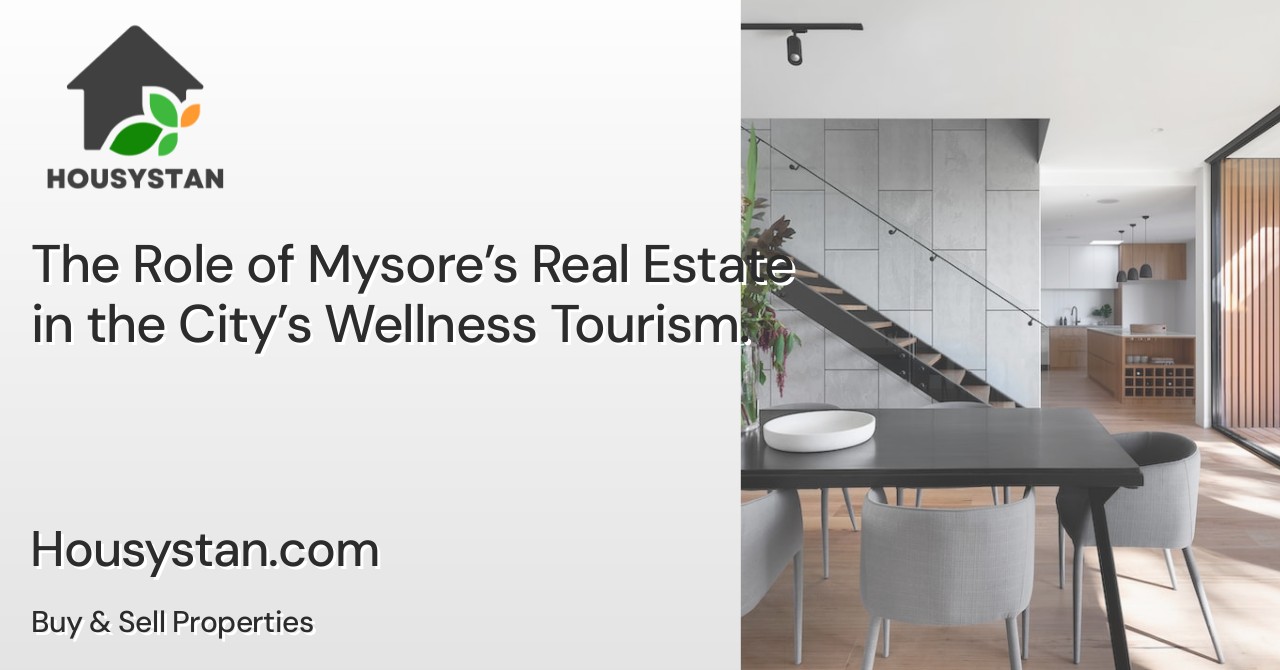The Role of Mysore’s Real Estate in the City’s Wellness Tourism
Read latest blogs and articles from Housystan

The Information mentioned here was last updated on:
29/1/2026Mysore, a vibrant city in Karnataka, has long been celebrated for its rich heritage and cultural significance. In recent years, Mysore has also emerged as a top destination for wellness tourism, attracting travelers seeking holistic health experiences. The remarkable growth in Mysore’s wellness tourism sector is closely linked to the city’s dynamic real estate market, which has played a pivotal role in shaping its status as a wellness hub.
The city’s real estate landscape has evolved rapidly to accommodate the increasing demand for wellness retreats, yoga centers, naturopathy clinics, and luxury resorts. Modern developments in Mysore are tailored to meet the needs of wellness-seeking visitors, with properties designed to offer serene environments, lush green surroundings, and easy access to natural attractions like Chamundi Hill and Karanji Lake. Many real estate projects in Mysore focus on sustainability, integrating eco-friendly designs and wellness amenities such as meditation gardens, organic cafes, and spa facilities.
Strategically located neighborhoods such as Gokulam, Jayalakshmipuram, and Vijayanagar have witnessed a surge in premium residential complexes and boutique hotels that cater specifically to health-conscious tourists. These areas provide a perfect blend of tranquility and accessibility, making them ideal for both short-term wellness stays and long-term investments. The proximity of these properties to renowned yoga institutes, including the world-famous Ashtanga Yoga Research Institute, further enhances Mysore’s allure among global wellness enthusiasts.
- Verified Tenants/Buyers
- Unlimited Property Listing
- Zero subscription/charges fee
Investors and developers recognize the city’s potential and are continually introducing new projects that reflect global trends in wellness-oriented living. From gated communities with holistic health centers to serviced apartments offering Ayurvedic treatments, Mysore’s real estate sector is at the forefront of supporting wellness tourism. This synergy not only boosts the local economy but also creates employment opportunities for residents, furthering the city’s reputation as a leading wellness destination in South India.
In summary, Mysore’s real estate market is instrumental in the city’s evolution as a premier wellness tourism hotspot. By fostering environments that promote health, relaxation, and well-being, Mysore continues to attract visitors from across India and around the world, solidifying its place on the global wellness tourism map.